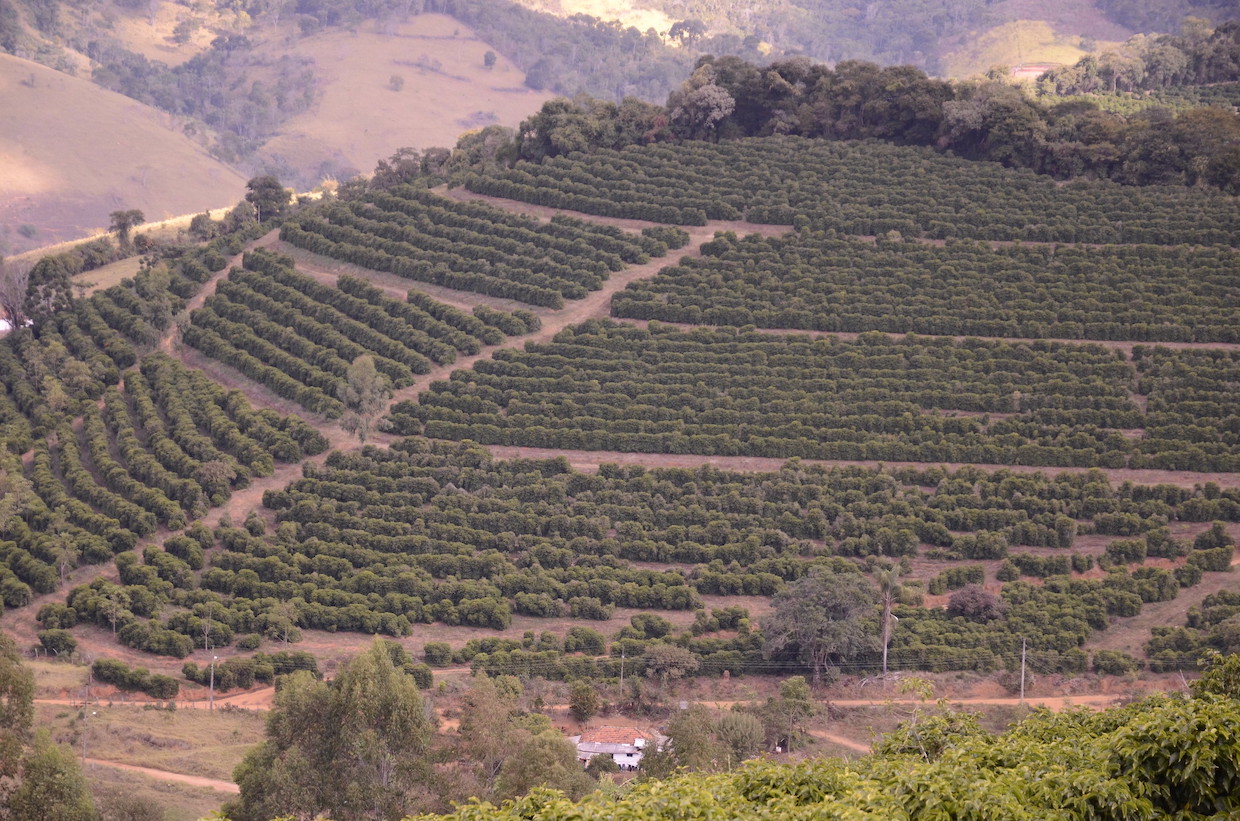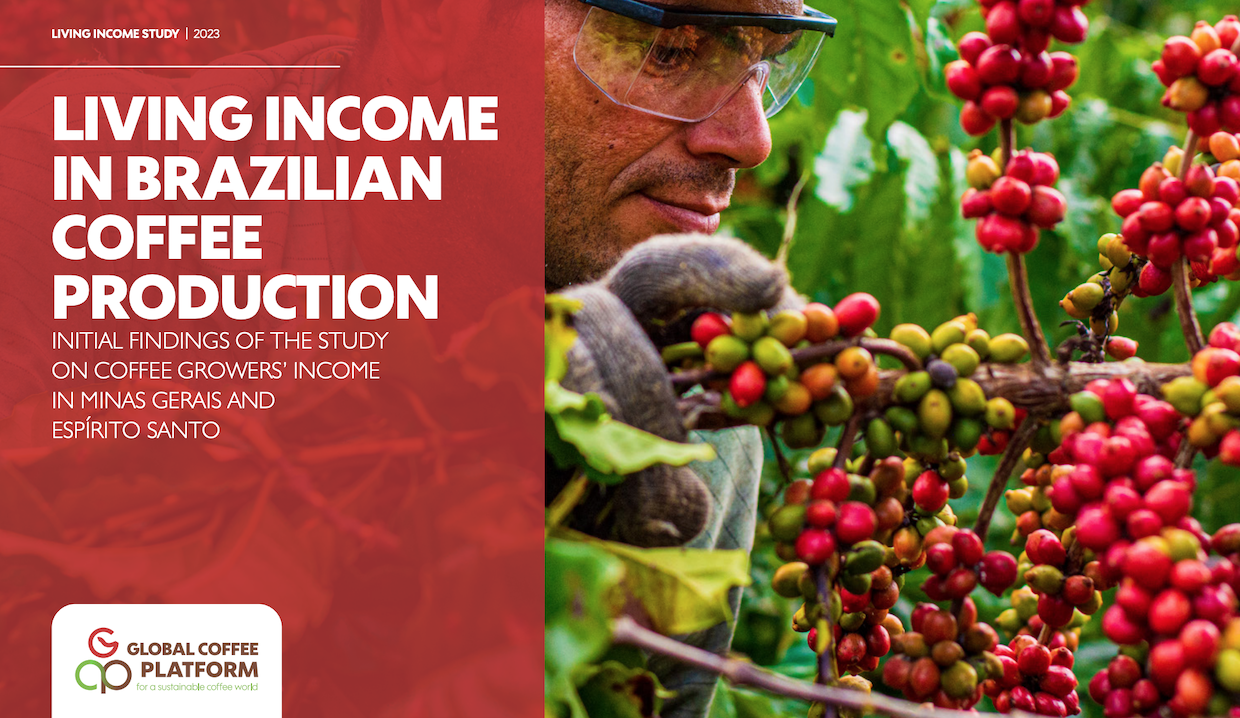Major “living income” research in Brazil found that while most types of coffee producers throughout the country’s two largest growing regions are able to earn a living income through coffee, the overwhelming majority of smallholder family farmers are not.
For context, the report notes that among Brazil’s approximately 188,000 “coffee growing units,” approximately 165,000 (87%) are family farms.
Coming from the international nonprofit Global Coffee Platform (GCP), the report notes that climate change is further affecting steady income potential, introducing increased risk to coffee growers throughout the Brazilian coffee sector.
“The results of this study suggest that a share of interviewed growers, particularly those who fit in the family farming category, do not earn a living income. These smallholders strongly depend on earnings not related to the property, such as outside work or governmental aids, to complement the household income,” the open-access report states. “On the other hand, growers with medium- and large-size plots of land, according to the study, obtain good earnings from coffee. This result is observed when there is a more inclusive and participative planning between the players of the coffee production chain, through cooperation mechanisms that contribute to reduce social and economic vulnerabilities.”
In an announcement of the study results, the GCP noted that living income is achieved when coffee growers have access to an “enabling environment,” which includes technical assistance, technology, access to credit, organizational connections, logistics and market access.
The study was focused on growers of different land-holding sizes in Brazil’s two largest coffee-growing regions: Minas Gerais, where there are approximately 123,000 “production units,” 95,000 of which are family farms; and Espirito Santo, which comprises nearly 75,000 production units, 58,000 of which are family farms.

“Brazil Coffee Tour” by baristahoon is licensed under CC BY-SA 2.0.
The report suggests that income diversification — i.e. the generation of income through other activities beyond coffee production — is an essential tool for Brazilian growers, especially the smaller-scale farmers who may also be more vulnerable to climate change effects.
“Income complementation has and will have a role increasingly important in view of the challenges presented by climate change, especially when crops suffer with droughts and frosts,” the report states. “The high degree of vulnerability to climate may lead to higher risk exposure among less favored farmers (with 0 to 20 ha) who live and produce in Southern Minas and Matas de Minas.”
The 69-page report stems from the Global Coffee Platform Collective Action Initiative on Social Well-Being, a four-year pre-competitive initiative launched in 2020 through funding from international coffee giants such as Starbucks, JDE Peet’s, Nestle and Ofi. The initiative is being led by Bonn, Germany-based GCP alongside the Brazilian exporters council Cecafé and InPACTO (National Pact for the Eradication of Slave Work Institute).
The full report can be found here.
Does your coffee business have news to share? Let DCN’s editors know here.







Comment